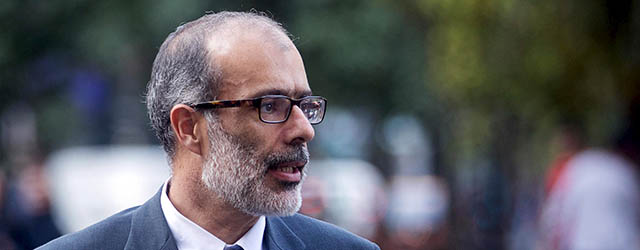For years Chile has been recognized as one of the best-performing emerging markets in the world. But a combination of external and internal factors have changed that.

Hopes are riding on new Finance minister Rodrigo Valdés to start turning things around.
Low copper prices have hit this copper-exporting nation hard. Spending and investment have lagged, and the economy has stalled. In May, president Michelle Bachelet responded to record-low approval ratings with a cabinet reshuffle that went well beyond the Finance post. It’s the first time a Finance minister has been switched out midterm since democracy was reestablished in Chile in 1990. Valdés, an economist, was previously chairman of state-owned Banco del Estado and deputy director at the International Monetary Fund for the Western Hemisphere and Europe.
The shuffle “was primarily motivated by low private consumption and investment,” says Luis Felipe Alarcón, chief economist of financial services firm EuroAmerica, citing soft copper prices and “low expectations for the local economy.”
Bachelet’s ambitious reform plan for the tax code, the labor market, the social security system and the constitution, as well as recent corruption scandals, have created uncertainty among consumers and investors.
Alarcón called Valdés’s choice “excellent” and expects it to inject confidence into the market.
“His career has been brilliant, in (both) the public and private sector. He has a solid grasp of the international environment and acknowledged academic prowess,” says Alarcón, who worked with Valdés at Chile’s Central Bank years ago. “Perhaps the market might doubt his ability to navigate the political environment, but this would be true for almost any economist.”
Valdés’s predecessor, Alberto Arenas, was harshly criticized for having shifted the focus away from economic growth, so the new minister’s top priority is to bring that issue to center stage.
“Valdés must help raise people’s expectations, reassure investors and consumers about the country’s economic future,” Alarcón says. Longer term, Chile must also address basic structural problems in education and energy that constitute bottlenecks to further expansion. But first things first.



